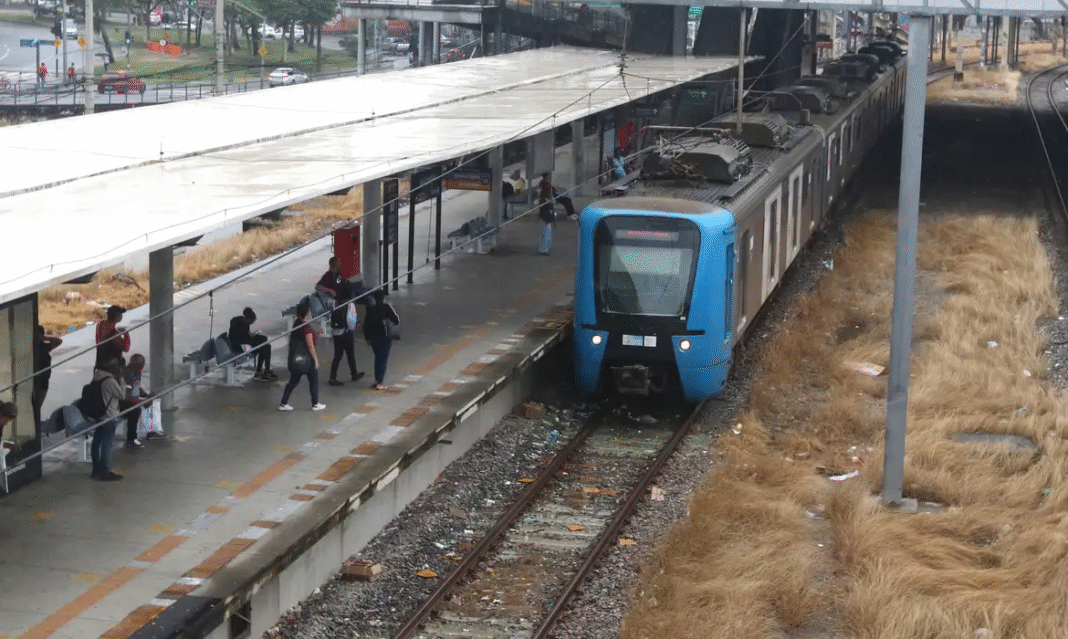According to information provided by SuperVia, between 6 January 2024 and 10 June 2025, 23 incidents of gunfire exchanges resulted in interruptions to train service. Seven of these occurred in the first six months of 2025 alone. Passengers on the Gramacho/Saracuruna line were the most affected, with 18 stoppages during this period. The most prolonged interruption took place on 20 July 2024, near Cordovil station, when train traffic was suspended for more than ten hours.
This Content Is Only For Subscribers
To unlock this content, subscribe to INTERLIRA Reports.
Gramacho/Saracuruna Route
The high frequency of such events on the Gramacho/Saracuruna line is due to the route passing through areas controlled by rival criminal factions. The train line serves Manguinhos Station, located in a community under the control of the Red Command (CV), and also passes through Vigário Geral, Parada de Lucas, and Cordovil stations. These three stations form part of the Complexo de Israel, which is heavily influenced by the Third Pure Command (TCP), a faction led in the area by drug trafficker Álvaro Malaquias Santa Rosa, known as “Peixão.”
Israel Complex
Because of this context, gunfights around stations near the Complexo de Israel are not uncommon and often force train traffic to be halted to prevent passengers from being struck by stray bullets. One such incident occurred on 11 March, when police located and demolished a “resort” belonging to Peixão in Parada de Lucas. The police operation triggered an intense shootout, leading to a train stoppage of over four hours in the region.
Drug Trafficking
Several train stations are directly influenced by drug trafficking or are known for visible drug use. In addition to Padre Miguel and Senador Camará (on the Santa Cruz branch line), other affected stations include Manguinhos, Vigário Geral, Parada de Lucas, and Cordovil (on the Gramacho/Saracuruna branch line), as well as Jacarezinho and Del Castilho (on the Belford Roxo branch line). Along this latter route, the presence of drug users is visible from the train in segments between Madureira and Cavalcanti, Thomaz Coelho and Pilares, and from Pilares through Del Castilho to Jacarezinho.
Analysis:
The data from SuperVia illustrates the serious impact of urban violence on Rio de Janeiro’s rail system, particularly on lines intersecting territories controlled by rival criminal factions. The Gramacho/Saracuruna line, which recorded the majority of service interruptions, passes through some of the most volatile areas of the city, including neighborhoods dominated by Red Command (CV) and Third Pure Command (TCP).
These recurrent interruptions are more than just logistical inconveniences — they are a clear reflection of how criminal dynamics undermine urban mobility and the right to safe transit. Train stoppages lasting several hours, such as the ten-hour suspension near Cordovil station, expose both passengers and railway workers to significant risk while also disrupting daily life for thousands of commuters.




